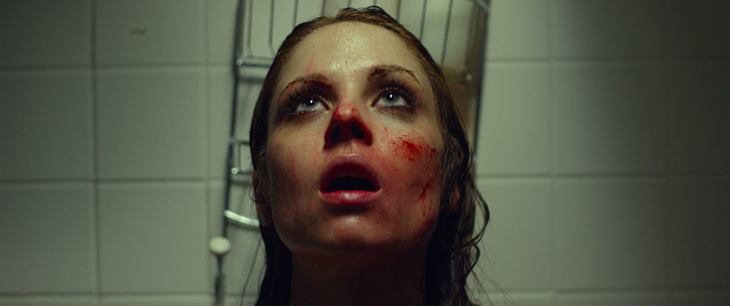For a film that is billed as a revenge thriller/horror, Julia is surprisingly quiet and not big on frights. None of this is to its detriment. Effectively directed by Matthew A. Brown, Julia instead succeeds because of its appealing, daydream-like aesthetic.
We are first introduced to Julia (Ashley C. Williams), a shy and retiring young woman, just before she is drugged and viciously raped by a group of men. Left traumatised by the event, she seeks an unorthodox treatment aimed at empowering women in her position. Barred from seeking revenge on those who harmed her, Julia is taught to become the predator instead of the victim.
This is a film full of juxtapositions, some intentional, others not. While the story isn’t terrible, it is well below average when compared to the direction and central performance. Williams brings a calm disconnect to the role, playing well the part of a damaged woman with furious retribution bubbling just beneath the surface.
This sense of abstraction is aided by very little dialogue and a strong soundtrack, part grunge and part Asian pop. These factors go a long way in showing the impact that events from the start of the film have had on Julia as she quietly goes through her day; it’s as though all semblance of her former life has been stripped away and all that’s left is vengeance.
This is a film where enjoyment is derived not from the plot, but from the visuals. Filled with long shots, Dutch angles and jump cuts, we witness a woman ultimately fighting not to be a victim. Written and directed by Brown, it is clear his strengths lie with latter, this being another reason why the minimalistic dialogue was a good choice: what little there is tends to be a touch clunky and serves not to aid in character development, but to provide extraneous information to the audience.
Ultimately Julia is a film that’s nice to look at with some pretty good music; just don’t expect too much from the narrative.
